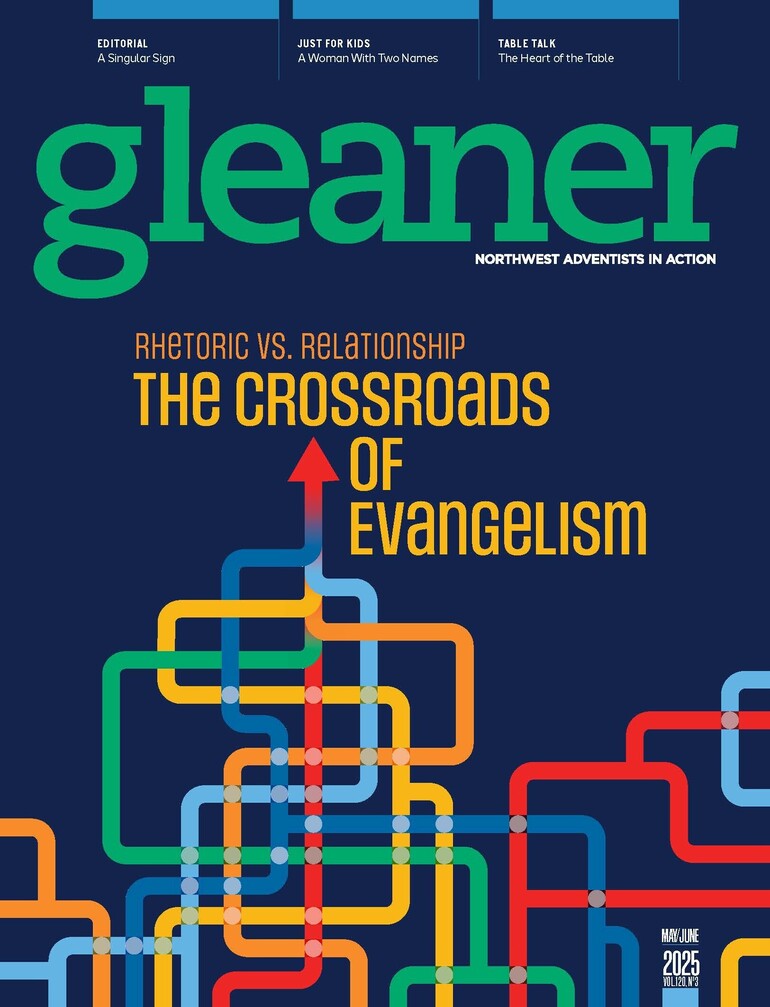"If I speak in the tongues of men or of angels, but do not have love, I am only a resounding gong or a clanging cymbal" (1 Cor. 13:1).
Did you know that there are estimated to be more than 7,000 languages in existence? I often wish I could simply speak more than one.
When my wife and I were first married, we went as missionaries to Palawan Island in the Philippines. We were tasked with connecting with the locals and learning the language. Thankfully, other missionaries had gone before us and made a simplistic guidebook that translated common phrases into English. For instance, next to a picture of a baby, the guidebook would have a phrase like, “Your child is so beautiful, so healthy.”
I took the word "beautiful" and applied it to other beautiful things like mountains, sunsets and my wife. Every day I would return from teaching math at the school and proclaim to Danelle, my wife, “Where is my beautiful wife?” At least I thought that’s what I was saying.
It wasn’t until a month later that I learned that a healthy/beautiful baby is a “fat” baby. So, the literal translation I was saying to Danelle was, “Where is my fat wife?” However, I said it with love in my eyes, and love covers a multitude of sins.
Another day, I returned to school after I was done with my lessons. The students asked why I was there, and I meant to say, “I am here to take your picture (pata)," but I accidentally said another word — patai — which means kill. So, I told the students with a smile on my face that I was there to kill them!
They laughed and laughed. Language mishaps can be funny, and they knew that even with my linguistic stumbling, I had a deep compassion for them in my heart.
Of the thousands of languages in existence, have you ever thought about what language came first? What was the language of Adam and Eve? What language would children speak if they were never spoken to?
One person who pondered these questions was King Frederick II of Sicily. He was one of the most powerful figures of the Middle Ages and ruled a vast area, beginning with Sicily and stretching through Italy all the way north to Germany. He viewed himself as a direct successor to the Roman emperors of antiquity. He was powerful, intelligent and controversial — so much so that one contemporary historian described him as diabolical.
The diabolical label came in part as a result of an experiment he did on children. He set out to discover the "natural" language of humans. He aimed to do this by selecting infants to be raised in complete isolation, without exposure to any language, to see what language they would spontaneously speak when they began to talk. He wanted to determine what language God gave to Adam and Eve and hypothesized that it would be Hebrew, Greek, Latin or Arabic.
Frederick’s experiment reveals the dangers of assuming that one language — or culture — holds divine preference over others.
Salimbene di Adam, a theologian and historian who lived during Frederick’s time, took particular issue with the king’s experiment. While he acknowledged Frederick’s intellect and linguistic abilities, he criticized his lack of faith.
Writing about the emperor, Salimbene remarked, “If he had been rightly Catholic and had loved God and His Church, he would have had few emperors his equals in the world.” However, according to Salimbene, Frederick had no faith in God and was, “crafty, wily, avaricious, lustful, malicious and wrathful.”
He especially took issue with the language experiment because when the children were deprived of touch, interaction and affection, they died. He said, “Children could not live without clappings of the hands, and gestures, and gladness of countenance, and blandishments.”
The medical terminology we have today for such deprivation is known as a failure to thrive. It's as if we were designed for connection. We were built for love. If there is a “language of God,” it’s not so much about the sounds we make with our tongue and lips as it is about the actions that come from our hearts.
Nearly 800 years after Frederick’s failed experiment, researchers at Harvard University set out to answer a very different question. In 1938, George Vaillant launched what would become the longest-running longitudinal study in developmental history, tracking the lives of 268 male undergraduate students to determine what leads to a fulfilling life.
Unlike Frederick’s grim experiment, which revealed the devastating consequences of isolation, Vaillant's study sought to uncover the foundations of happiness. At the time, many assumed that wealth, status, and physical advantages would be the greatest contributors. However, 75 years later, the study arrived at a five-word conclusion: Happiness is love, full stop.
Love, it turns out, can override all sorts of obstacles and complications. As long as we have love, it leads to a fulfilling, meaningful and ultimately happy existence.
If there is such thing as a “heavenly” language, I believe that language is love. It crosses barriers and misunderstandings, bridges polarizing divides and, in the end, is the only thing that makes us happy. The language of God is love, full stop.









